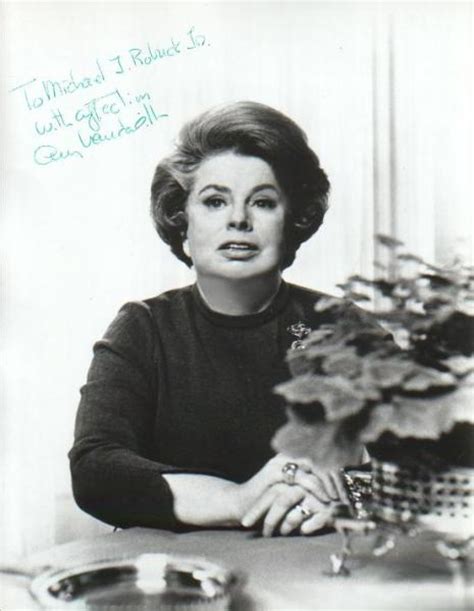A Quote by Amy Vanderbilt
We must learn which ceremonies may be breached occasionally at our convenience and which ones may never be if we are to live pleasantly with our fellow man.
Quote Topics
Related Quotes
Our business is to wake up. We have to find ways in which to detect the whole of reality in the one illusory part which our self-centered consciousness permits us to see. We must not live thoughtlessly, taking our illusion for the complete reality, but at the same time we must not live too thoughtfully in the sense of trying to escape from the dream state. We must be continuously on watch for ways in which we may enlarge our consciousness.
The more sincerity is developed, the greater share of truth you will have. And however much sincerity a person may have, there is always a gap to fill, for we live in the midst of falsehood, and we are always apt to be carried away by this world of falsehood. Therefore we must never think we are sincere enough, and we must always be on our guard against influences which may carry us away from that sincerity which is the bridge between ourselves and our ideal. No study, no meditation is more helpful than sincerity itself.
It is not our heads or our bodies which we must bring together, but our hearts. . . . Humanity. . . is building its composite brain beneath our eyes. May it not be that tomorrow, through the logical and biological deepening of the movement drawing it together, it will find its heart, without which the ultimate wholeness of its power of unification can never be achieved?
We don't always know the details of our future. We do not know what lies ahead. We live in a time of uncertainty. We are surrounded by challenges on all sides. Occasionally discouragement may sneak in to our day; frustration may invite itself into our thinking; doubt might enter about the value of our work. In these dark moments Satan whispers in our ears that we will never be able to succeed, that the price isn't work the effort, and that our small part will never make a difference. He, the father of all lies, will try to prevent us from seeing the end from the beginning.
We are conscious of an animal in us, which awakens in proportion as our higher nature slumbers. It is reptile and sensual, and perhaps cannot be wholly expelled; like the worms which, even in life and health, occupy our bodies. Possibly we may withdraw from it, but never change its nature. I fear that it may enjoy a certain health of its own; that we may be well, yet not pure.
Our policy is to give all possible material aid to the nations that still resist aggression across the Atlantic and Pacific Oceans. And we make it abundantly clear that we intend to commit none of the fatal errors of appeasement. We have the thought that in this nation of many states we have found the way in which men of many racial origins may live together in peace. If the human race as a whole is to survive, the world must find a way by which men and nations may live together in peace. We cannot accept the doctrine that war must be forever a part of man's destiny.
The only things in which we can be said to have any property are our actions. Our thoughts may be bad, yet produce no poison; they may be good, yet produce no fruit. Our riches may be taken away by misfortune, our reputation by malice, our spirits by calamity, our health by disease, our friends by death. But our actions must follow us beyond the grave; with respect to them alone, we cannot say that we shall carry nothing with us when we die, neither that we shall go naked out of the world.
We live in a time of transition, an uneasy era which is likely to endure for the rest of this century... During this period we may be tempted to abandon some of the time-honored principles and commitments which have been proven during the difficult times of past generations. We must never yield to this temptation. Our American values are not luxuries but necessities - not the salt in our bread but the bread itself.
There are various art forms we may or may not have talent for, may or may not have time for, and we may or may not be able to express ourselves in, but we ought to consider this fact-that whether we choose to be an environment or not, we are. We produce an environment other people have to live in. We should be conscious of the fact that this environment which we produce by our very 'being' can affect the people who live with us or work with us.
We may conclude, therefore, that, in order to establish laws for the regulation of property, we must be acquainted with the nature and situation of man; must reject appearances, which may be false, though specious; and must search for those rules, which are, on the whole, most useful and beneficial.
We must carry Jesus in our hearts to wherever He wants to go, and there are many places to which He may never go unless we take Him to them. None of us knows when the loveliest hour of our life is striking. It may be when we take Christ for the first time to that grey office in the city where we work, to the wretched lodging of that poor man who is an outcast, to the nursery of that pampered child, to that battleship, airfield, or camp

































